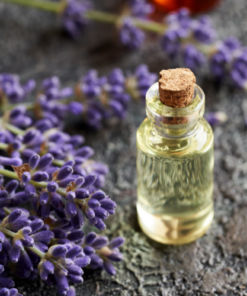Peppermint Essential Oil – 10ml
R52,05
Peppermint Essential Oil – 10ml – a strong, sharp, minty fragrance with a hint of sweetness. Its crisp, refreshing scent is both energizing and cooling
1 in stock
Peppermint Essential Oil – 10ml
Peppermint Essential Oil, sourced from the Mentha piperita plant, is known for its fresh, invigorating scent and numerous therapeutic benefits. This essential oil plays a key role in your wellness routine, providing natural relief for both physical discomfort and emotional stress. Its cooling fragrance and versatile properties make it an essential tool for aromatherapy and skincare.
What Does Peppermint Essential Oil Smell Like?
Peppermint Essential Oil has a strong, sharp, minty fragrance. It also carries a sweet undertone, creating a refreshing and energizing aroma. The scent helps clear the mind, improve focus, and reduce mental fatigue.
Benefits & Uses
-
Relieves Headaches & Migraines: Peppermint oil offers quick relief from headaches and migraines. Its cooling sensation soothes pain and discomfort, helping you feel better fast.
-
Boosts Energy & Focus: The invigorating scent promotes mental clarity and concentration. It boosts energy and helps you stay alert throughout the day.
-
Supports Digestive Health: Peppermint oil eases bloating, indigestion, and nausea. It calms the stomach and aids digestion.
-
Relieves Muscle & Joint Pain: Peppermint oil has natural analgesic and anti-inflammatory properties. It helps relieve muscle soreness, joint pain, and stiffness.
-
Antibacterial & Antifungal: With natural antibacterial and antifungal benefits, Peppermint Essential Oil supports skin health and helps treat acne and skin irritations.
How to Use Peppermint Essential Oil
-
For Aromatherapy: Add 3-5 drops to a diffuser to boost energy, clear the air, and reduce fatigue.
-
For Headache Relief: Apply diluted Peppermint oil to your temples or neck. The cooling effect provides relief from headaches or migraines.
-
For Digestive Support: Dilute a few drops of Peppermint oil and massage onto your stomach to ease digestive discomfort.
-
For Muscle & Joint Relief: Massage diluted Peppermint oil into sore muscles or joints. It helps reduce pain and inflammation.
Peppermint Essential Oil is a refreshing and versatile addition to your collection. Whether you need relief from headaches, digestive support, or a boost in energy, this oil provides natural solutions for everyday wellness.
| Weight | 0,120 kg |
|---|---|
| Dimensions | 3 × 3 × 6 cm |











